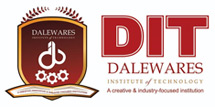Multimedia Technology
Home / Multimedia Technology
The National Diploma (ND) in Multimedia Technology
The programme will provide intensive practical and theoretical courses that encompass all key aspects of film and multimedia production. It will emphasize particularly the need for high ethical standards in the exercise of professional work and obligations.

The National Diploma (ND) in Multimedia Technology
Aims and outcomes of course module
The aims of the module Multimedia in Education are that the target groups develop a deep knowledge and high competencies regarding:
- Why, where and how multimedia can be used in school educational settings;
- Pedagogical scenarios concerning the mainstream and future use of educational multimedia;
- Important learning and teaching aspects, in particular, teachers’ roles, students’ learning strategies, social/collaborative learning, ICT literacy, metacognition, and motivation;
- Present educational goals and how educational multimedia can support these goals;
- Critical and reflective selection and the use of educational multimedia according to mainstream scenarios for multimedia in education;
- Evaluation methods related to the educational use of multimedia.
In particular, the module is aimed at boosting educators’ motivation and skills in applying multimedia into educational settings and adapting the content of the course into current educational practices.
In this context, knowledge implies theoretical and practical knowledge concerning the content to be learnt. Competencies refer to the ability to transfer and adapt the material of the module into a real classroom situation. After this module, the trainee is expected to be able to use and apply the acquired knowledge and competencies in his or her school situation.
ENTRY REQUIREMENTS (ND MULTIMEDIA TECHNOLOGY)
Applicants with the following qualifications may be considered for admission into the National Diploma programme by direct entry:
- C.E. Ordinary level or its equivalent (Teachers Grade II, W.A.S.C., S.S.C.E.) with four credit passes in English Language, Mathematics and any other two subjects from the following: Economics, Business Methods, Principles of Accounts, Literature in English, Commerce, History, Statistics, geography, Government, Agricultural Science/Biology obtained at not more than two sittings, or
- Four credit passes in relevant subjects as stated in (I) above obtained at the final examination of an NBTE recognized Preliminary ND Programme offered by the polytechnics and similar post-secondary technical institutions.
CURRICULUM STRUCTURE
The structure of the curriculum of all ND programmes consists of four main components. These are:
- General Education Courses
- Foundation Courses
- Professional Courses
- Supervised Industrial Work Experience Scheme (SIWES)
The curriculum of each programme is structured into four semesters of classroom/Workshop/Laboratory activities within the institution and three (3) to four (4) months Supervised Industrial Work
Experience Scheme (SIWES) in the relevant industries. Each semester of institutional based activities shall be for seventeen (17) weeks duration distributed as follows: 15 weeks of teaching including practicals, tests, quizzes etc.; and 2 weeks shared for registration and examinations.
ACCREDITATION AND CONDITIONS FOR THE AWARD OF ND
Each programme offered shall be accredited by the NBTE before the diplomates can be awarded the National Diploma. Details about the process of accrediting a programme for the award of the ND or HND are obtainable from the Executive Secretary, National Board for Technical Education, Plot B, Bida Road, P.M.B. 2239, Kaduna, Nigeria. Tel. 062-237-609.
Institutions offering accredited programmes will award the National Diploma to candidates who have successfully completed the program’s course work, after passing the prescribed examinations, diploma project and the Supervised Industrial Work Experience. Such candidates should have completed a minimum of between 72 and 80 semester credit units depending on the programme.
The Diplomas shall be classified as follows:
Distinction – GPA of 3.50 and above
Upper Credit – GPA of 3.00 – 3.49
Lower Credit – GPA of 2.50 – 2.99
Pass – GPA of 2.00 – 2.49
Fail – GPA of below 2.00
